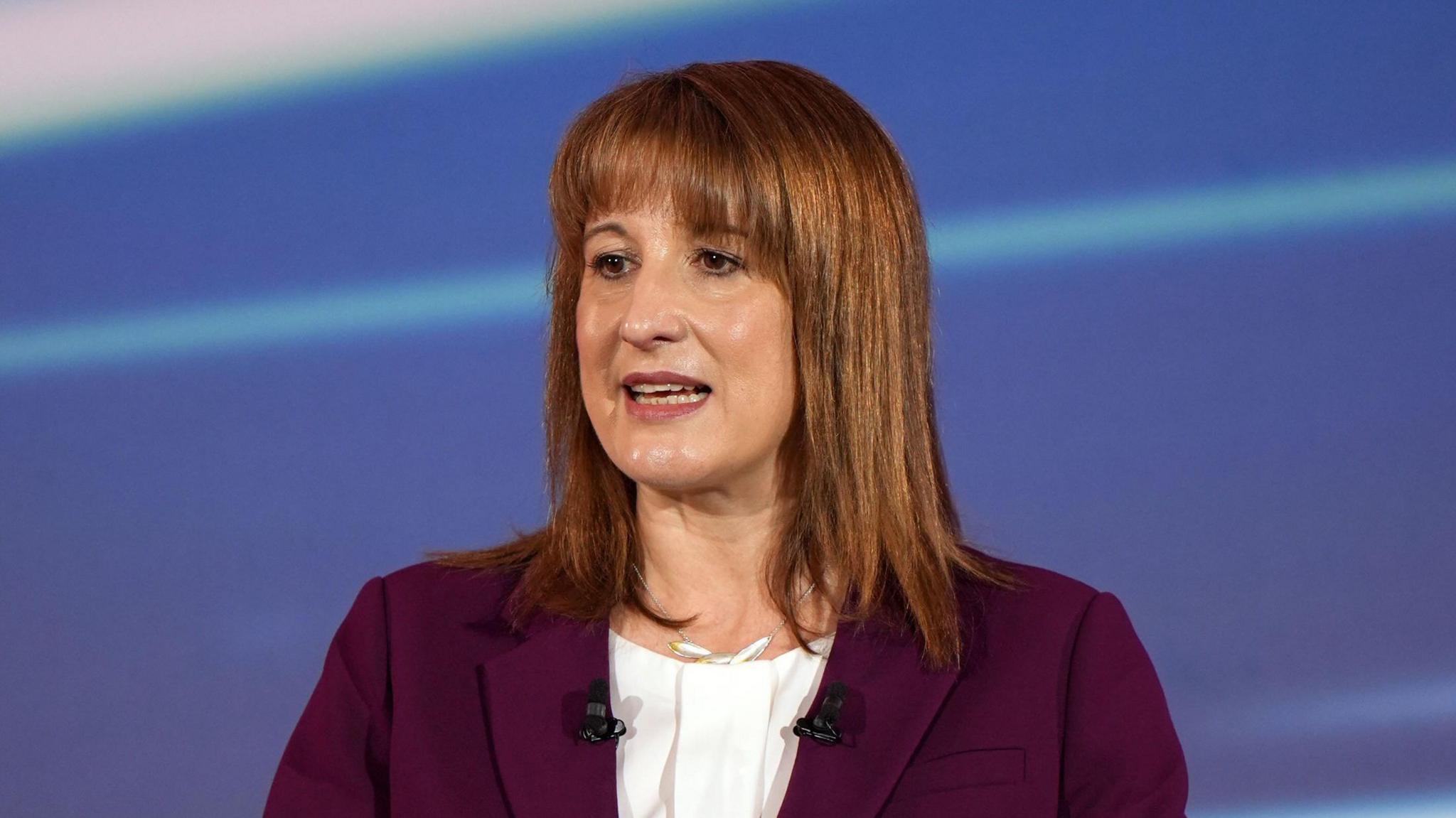Chancellor Rachel Reeves dropped a bombshell this morning by scrapping plans to hike income tax rates in the 26 November Budget, a move that sent the pound tumbling and gilt yields soaring as markets grapple with the fallout from brighter economic forecasts. Whispers in Westminster now swirl around stealthier options to plug the £20 billion fiscal gap, from clamping down on pension perks to slapping levies on electric vehicles and luxury homes.
For households already wrestling with 3.8% inflation that makes every supermarket run feel like a gamble, these potential shifts carry the weight of quiet dread, the kind that turns family dinners into tense budget talks. Yet in this swirl of uncertainty, understanding the possible hits to your finances could arm you with the clarity to navigate what's coming.
How Your Wallet Could Be Impacted
Speculation runs hot that frozen thresholds for income tax and National Insurance might linger, a subtle drag that could pull an extra £400 to £800 from middle-income pockets over the next few years as wages chase inflation without relief. Families earning £35,000 to £60,000 would feel it first, their modest raises morphing into unintended tax bills that squeeze room for kids' activities or that long-overdue car repair. Higher earners above £125,000 might dodge broader rate jumps, but targeted wealth measures could nibble £2,000 or more annually from investment returns, eroding the nest egg built over sleepless nights of overtime.
Pension tweaks loom as another shadow, with talks of capping tax-free contributions at £2,000 through salary sacrifice schemes potentially costing diligent savers £1,500 in lost relief each year. Imagine pouring hours into a job only to watch retirement dreams dim because of a policy pivot, that sinking realization hitting like cold rain on a payday. Property owners could face stiffer stamp duty or an annual wealth charge, adding £1,000 to £3,000 for second-home holders and landlords, a burden that ripples into higher rents for tenants chasing affordable roofs over their heads. Even the eco-friendly choice of an electric vehicle might sting, as a proposed road tax could tack on £200 yearly, turning green ambitions into pricier commutes amid Britain's faltering push toward net zero.

Chancellor Rachel Reeves outlines proposed exit and mansion taxes ahead of the November 2025 Budget, aiming to address the UK’s fiscal gap.
Michael McMahon, Professor of Economics at the University of Oxford, lays it bare with unflinching resolve. "Let’s be honest. The question is when, not if, taxes will go up, and then how they should go up," he says, his words carrying the weary edge of someone who's crunched the numbers and seen the human cost firsthand. It's a gut punch that echoes the frustration bubbling in living rooms across the country, where fiscal fixes feel distant until they dock your direct debit.
Why Tax Decisions Are Needed
Reeves holds fast to her unshakeable fiscal guardrails, aiming to trim public debt relative to GDP and end routine borrowing by the parliament's close, even as the Office for Budget Responsibility gears up to dissect every proposal under harsh light. Last month's £20.2 billion borrowing surge marks the heaviest September tally in five years, clashing with tepid 0.1% growth from July through September and hints of a dip last month that leaves economists biting nails. Inflation's stubborn perch at 3.8% taunts the Bank of England's 2% goal, amplifying calls for revenue streams that won't crush consumer spirits already frayed by endless price tags.
According to analysis reviewed by Finance Monthly, the tilt favors nipping at affluent edges through capital gains tweaks or business levies, sparing the daily grinders from outright blows that could stall spending when shops need footfall most. This balancing act stirs a undercurrent of anxiety, families wondering if today's prudence sows seeds for tomorrow's regrets, all while the chancellor steels for choices that test the nation's fraying trust.
The Stealth Tax Trap: Why Frozen Thresholds Could Cost You More Than You Think
Picture a promotion that should spark joy but instead fuels quiet resentment as inflation silently shoves you into a higher tax bracket, that's the stealth tax of frozen thresholds in action, a policy sleight where your personal allowance hovers at £12,570 while living costs climb unchecked. Simply put, without upward adjustments, everyday salary bumps meant to offset rising bills instead inflate your tax liability by 1% to 3% over time, siphoning £250 to £700 annually from average earners and curtailing the freedom to splurge on a weekend getaway or stockpile for emergencies.
In this 2025 landscape, the threat sharpens with inflation's 3.8% bite outpacing projections by 0.5 points, potentially hastening bracket creep for 12 million taxpayers and amplifying losses by 20% compared to milder years, as flagged in fresh Institute for Fiscal Studies projections. Consider Tom, a 38-year-old engineer in Bristol on £42,000, his expected 3.5% raise should net £1,000 extra but frozen bands claim £350, forcing tough calls on whether to skip the family cinema nights or dip into savings for boiler fixes. This isn't mere arithmetic, it's the creeping theft of stability that amplifies holiday stress and mortgage worries into something profoundly personal.
The actionable edge here cuts deeper than vague warnings: Ahead of the Budget, pivot to under-the-radar relief by channeling bonuses into workplace ISAs before any limits shrink, a move that could safeguard £800 in tax-free growth this year alone, a strategy just 45% of wage earners leverage per recent HMRC insights. Scrutinize your tax code now via your employer's portal, tweak for overpayments to reclaim £200 on average, and redirect those funds into a high-yield cash account yielding 4.5%, transforming vulnerability into a buffer that weathers whatever Reeves unveils.

The Chancellor’s red HM Treasury Budget box, held by a Union Jack-gloved hand, represents the annual announcement of taxes, spending, and economic strategy.
Welfare, Benefits, and Family Budgets
Eyes widen for larger families as hints emerge of easing the two-child Universal Credit limit, which could funnel £1,800 more yearly to homes with three or more little ones, a timely cushion against the festive squeeze that turns gift lists into guilt trips. Energy relief dangles too, through possible VAT trims or eased supplier rules that might shave £120 from winter bills, offering a sliver of warmth to the six million households still scarred by past spikes. These prospective boosts weave a thread of cautious optimism into the Budget's stern fabric, prioritizing those whose budgets bend but rarely break under relentless pressures.
What Happens After the Budget Reeves' parliamentary unveiling will ignite four days of heated scrutiny and votes, with interim changes landing fast if approved, though enduring reforms hinge on a comprehensive finance bill. The OBR's impartial breakdown will pierce the rhetoric, handing households a no-nonsense gauge of growth trajectories, debt trajectories, and the tangible dents to monthly outgoings.
Financial Takeaway Amid the Budget's brewing storm, a fragile optimism flickers for everyday Brits, with income rates likely steady to cradle take-home pay against the gale of uncertainty. Potential freezes and pinpointed lifts strive for equilibrium between equity and endurance, yet the emotional ripple stirs a profound unease, families holding breath for policies that honor their grit without exacting too steep a toll. In this pivotal moment, it's a stark call to tune in closely, for the choices ahead could redefine not just pounds in pockets but the quiet hopes tucked within them.
Beyond the Headlines: Answers to Your Burning Budget Questions
When Is the UK Budget 2025, and What Makes This One Different?
The UK Budget 2025 arrives on 26 November, pushed later to weave in the latest economic pulses and sidestep Yuletide haze. This round crackles with fresh post-election intensity under Labour, as Reeves crafts her inaugural full fiscal canvas against a backdrop of market tremors and an anticipated 15,000 high-net-worth exits, blending green pledges with welfare overhauls in ways past budgets shied from amid election fog or external tempests. It charts a course laced with resolve and risk, equipping families with a blueprint that's as much about guarded aspirations as gritty reckonings.
What Taxes Might Rise in the UK Budget 2025?
Forecasts spotlight National Insurance freezes alongside income tax bands holding firm, a combo that could net £4.5 billion by edging inflation-fueled pay into steeper tiers without overt alarms. Electric vehicle duties surface prominently to recapture £1.8 billion in fading fuel takings, layering £140 per year onto EV running costs, while inheritance tax expansions on estates might draw £2.7 billion from legacies. These selective surges seek to ease off low-wage shoulders yet cascade into home buys and savings strategies, urging preemptive tweaks to fortify personal ledgers against the unforeseen.
What Is Rachel Reeves' Net Worth in 2025?
Rachel Reeves' net worth stands at approximately £1.57 million in 2025, drawn from her Bank of England economist tenure, parliamentary earnings topping £91,000, and savvy holdings in real estate plus diversified assets. Public disclosures paint a portrait of ascent from humble Yorkshire beginnings to fiscal helm, free of extravagance, a profile that invites probing gaze during a Budget shadowed by equity debates. It highlights her advocacy for measured levies, illustrating how merit-forged affluence aligns with reforms extending opportunity rungs to those climbing behind.













